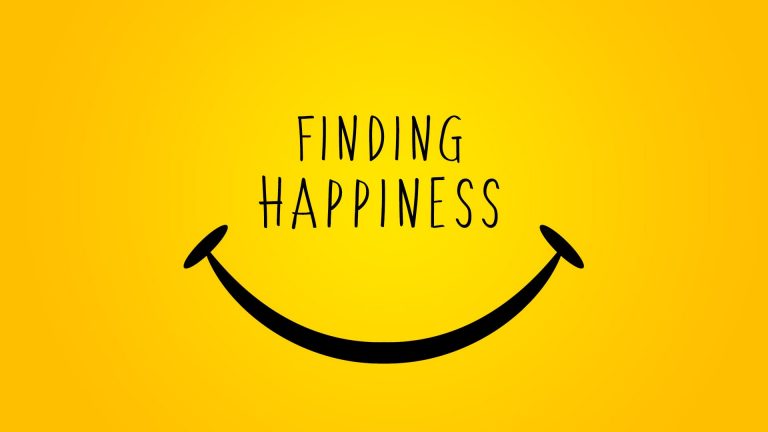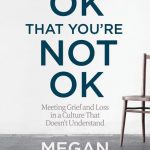“Success is getting what you want; Happiness is wanting what you get.”
Happiness is an emotional response to an outcome; if you win, you become happy. If you don’t, you become unhappy. It is an if-then, cause-and-effect proposition that is not sustainable because every time you attain a certain level of happiness, you raise the bar, and it is an endless loop. We also schedule and delay our happiness; we say when this happens, I will become happy. If this then that, Someday I’ll when so and so happens, I would be happy when I get married we change it to when we have kids, then when the kids leave home to when there are grandkids, there is always a reason to postpone. It is a constant moving target.
“Happiness is not a goal…it’s a by-product of a life well-lived.” – Eleanor Roosevelt
Author Gary Keller, in his book “The ONE Thing: The Surprisingly Simple Truth Behind Extraordinary Results,” shares a great anecdote on happiness through the story of the begging bowl:
Upon coming out of his palace one morning and encountering a beggar, a king asks, “What do you want?” The beggar laughingly says, “You ask as though you can fulfill my desire!” Offended, the king replies, “Of course I can. What is it?” The beggar warns, “Think twice before you promise anything.”
Now, the beggar was no ordinary beggar but the king’s past-life master, who had promised in their former life, “I will come to try and wake you in our next life. This life you have missed, but I will come again to help you.”
The king, not recognizing his old friend, insisted, “I will fulfill anything you ask, for I am a very powerful king who can fulfill any desire.” The beggar said, “It is a very simple desire. Can you fill this begging bowl?” “Of course!” said the king, and he instructed his vizier to “fill the man’s begging bowl with money.”
The vizier did, but when the money was poured into the bowl, it disappeared. So he poured more and more, but the moment he did, it would disappear. The begging bowl remained empty.
Word spread throughout the kingdom, and a huge crowd gathered. The prestige and power of the king were at stake, so he told his vizier, “If my kingdom is to be lost, I am ready to lose it, but I cannot be defeated by this beggar.” He continued to empty his wealth into the bowl. Diamonds, pearls, emeralds. His treasury was becoming empty.
And yet the begging bowl seemed bottomless. Everything put into it immediately disappeared!
Finally, as the crowd stood in utter silence, the king dropped at the beggars feet and admitted defeat. “You are victorious, but before you go, fulfill my curiosity. What is the secret of this begging bowl?”
The beggar humbly replied, “
There is no secret. It is simply made up of human desire.”
One of our biggest challenges is making sure our life’s purpose doesn’t become a beggar’s bowl, a bottomless pit of desire continually searching for the next thing that will make us happy. That’s a losing proposition.
Acquiring money and obtaining things are pretty much all done for the pleasure we expect them to bring. On one hand, this actually works. Securing money or something we want can spike our happiness meter—for a moment. Then it goes back down.
Over the ages, our greatest minds have pondered happiness, and their conclusions are much the same: having money and things won’t automatically lead to lasting happiness.
How circumstances affect us depends on how we interpret them as they relate to our life. If we lack a “big picture” view, we can easily fall into serial success seeking. Why? Once we get what we want, our happiness sooner or later wanes because we quickly become accustomed to what we acquire.
This happens to everyone and eventually leaves us bored, seeking something new to get or do. Worse, we may not even stop or slow down to enjoy what we’ve got because we automatically get up and go for something else. If we’re not careful, we wind up ricocheting from achieving and acquiring to acquiring and achieving without ever taking time to fully enjoy any of it. This is a good way to remain a beggar, and the day we realize this is the day our life changes forever. So how do we find enduring happiness?
Happiness happens on the way to fulfillment.
We schedule our happiness and believe that someday we will get happy, we say someday I’ll do that when so and so happens. Happiness becomes a destination, we become ecstatic when great things happen to us and we become sad when bad things happen to us.
In his 2013 Commencement Speech at the University of Western Australia, Comedian Tim Minchin advised the graduates not to seek Happiness:
Happiness is like an orgasm: if you think about it too much, it goes away. Keep busy and aim to make someone else happy, and you might find you get some as a side effect.
Matthew McConaughey’s 2015 University of Houston Commencement Speech:
“I just want to be happy.” I hear that all the time. But what IS happiness? Happiness is an emotional response to an outcome — If I win I will be happy, if I don’t I won’t. An if-then, cause and effect, quid pro quo standard that we cannot sustain because we immediately raise it every time we attain it. You see, happiness demands a certain outcome, it is result reliant.
If happiness is what you’re after, then you are going to be let down frequently and be unhappy much of your time. Joy, though, is something else. It’s not a choice, not a response to some result, it is a constant. Joy is “the feeling we have from doing what we are fashioned to do,” no matter the outcome.
Personally, as an actor, I started enjoying my work and literally being happier when I stopped trying to make the daily labor a means to a certain end — I need this film to be a box office success, I need my performance to be acknowledged, I need the respect of my peers.
All reasonable aspirations but truth is, as soon as the WORK, the MAKING of the movie, the DOING of the deed became the reward in itself — I got more box-office, more accolades and respect than I’d ever had before. See, JOY is always in process, under construction — it’s in the constant approach, alive and well —in the DOING of what we are fashioned to do… and enJOYing doing it.
Happiness is an emotional response to an outcome — If I win I will be happy, if I don’t I won’t.
Author Will Bowen, in his book “A Complaint Free World.” writes:
“From the moment we first draw breath, we are moving toward the grave. When we’ll get there, none of us knows. The tragedy is not to die but to have never lived. To never have enjoyed where we are. We tend to relegate happiness to “someday.” When all of our problems are resolved, we will be happy. Well, the only day you will no longer have problems is the day when you exhale for the final time. Until then, there will be challenges and struggles, so you might as well make the decision—yes, the decision—to be happy.”
“Happiness is like a butterfly, the more you chase it, the more it will evade you, but if you notice the other things around you, it will gently come and sit on your shoulder.” – Henry David Thoreau
Lama Gendun Rinpoche writes:
“Happiness cannot be found through great effort and willpower, But is already there, in relaxation and letting-go. Don’t strain yourself, there is nothing to do . . .Only our search for happiness prevents us from seeing it . . .Don’t believe in the reality of good and bad experiences; They are like rainbows. Wanting to grasp the ungraspable, you exhaust yourself in vain. As soon as you relax this grasping, space is there—open, inviting, and comfortable. So make use of it. Everything is already yours. Search no more. Don’t go into the inextricable jungle looking for the elephant who is already quietly at home. Nothing to do, nothing to force, nothing to want, and everything happens by itself.”
Happiness cannot be found through great effort and willpower, But is already there, in relaxation and letting-go.”
The key is to understand that money and material things would not make you happy, but we all want to find it out ourselves. Happiness is now, yesterday is history, tomorrow is a mystery, but today is a gift. That is why it is called the present. There would always be something to aim for, something that would give you that endorphin rush, but the more you get, the more you want. As Henry David Thoreau once quipped, “Happiness is like a butterfly, the more you chase it, the more it will evade you, but if you notice the other things around you, it will gently come and sit on your shoulder.”
All the best in quest to get better. Don’t Settle: Live with Passion,



Comments are closed.